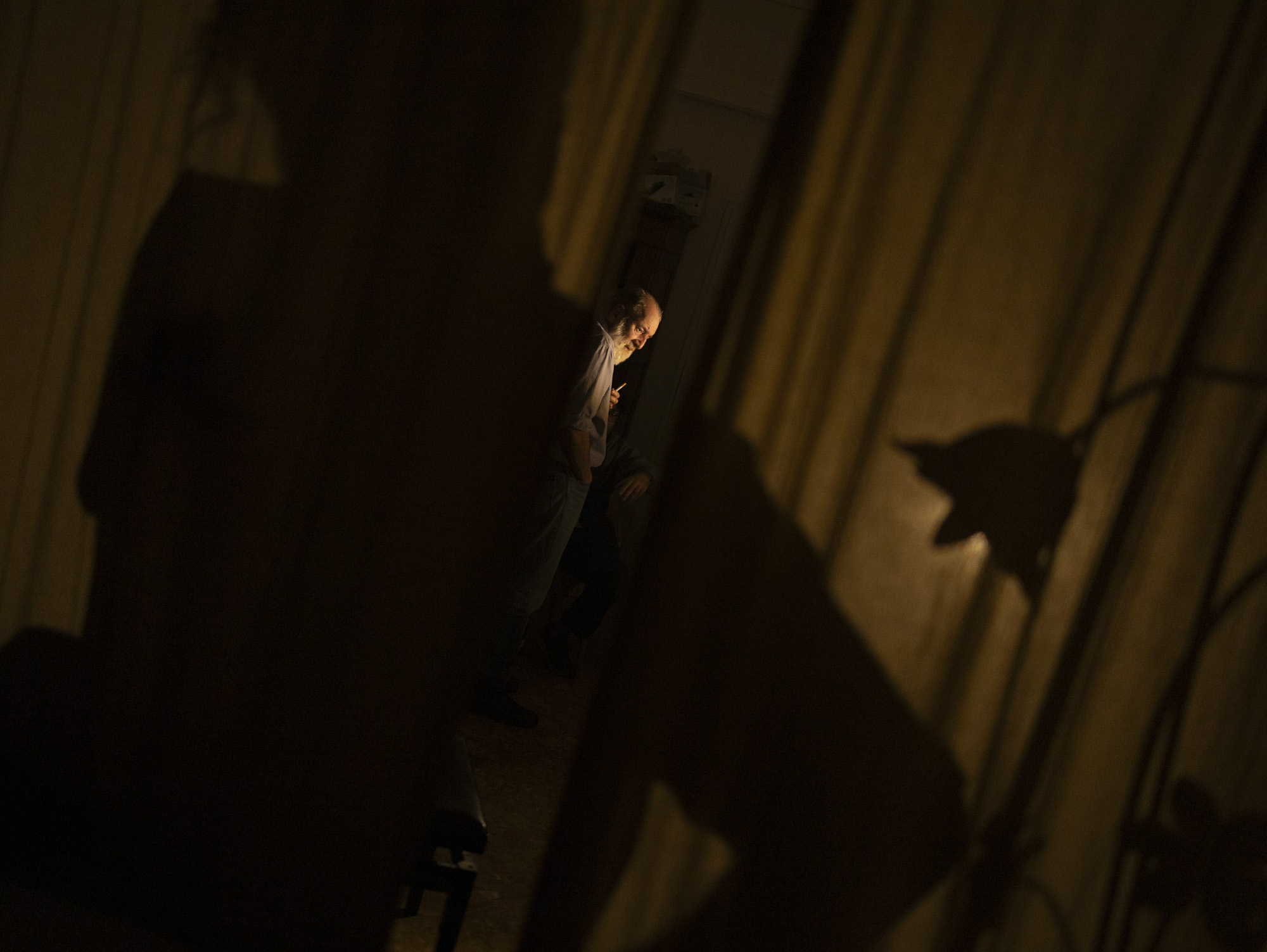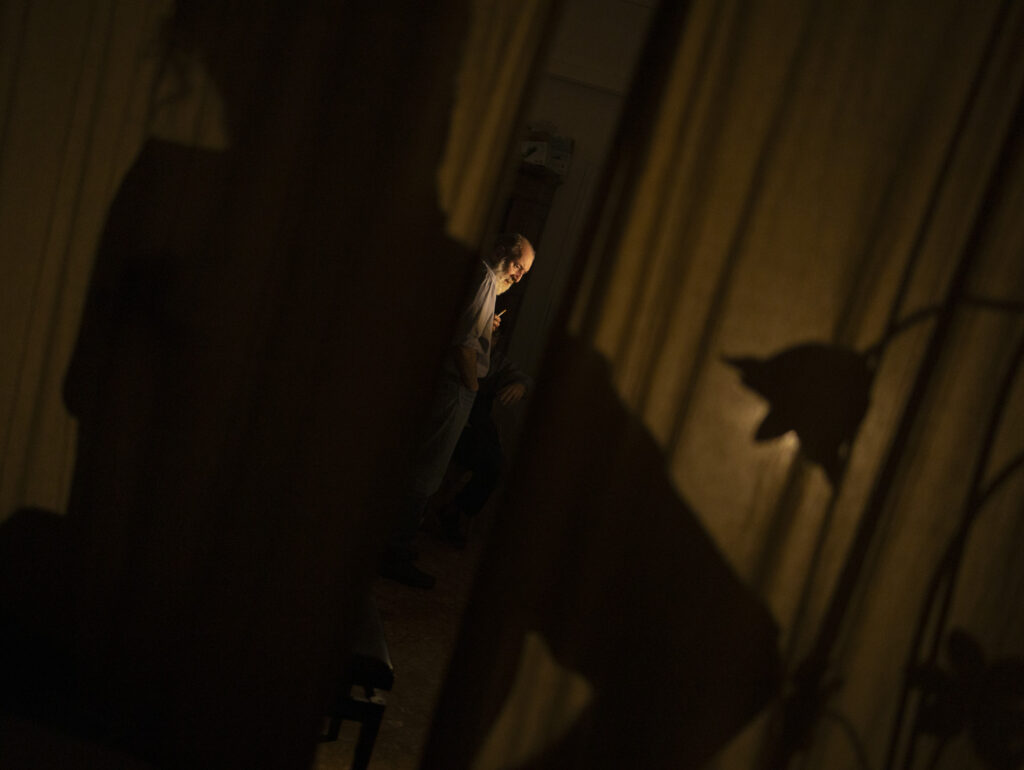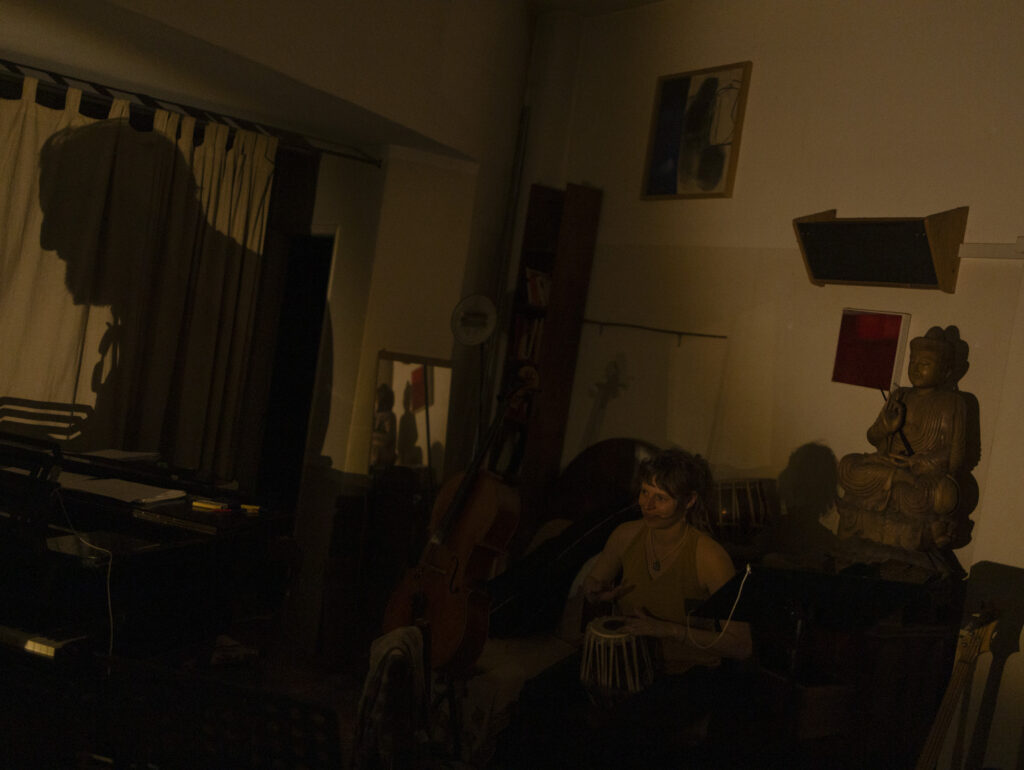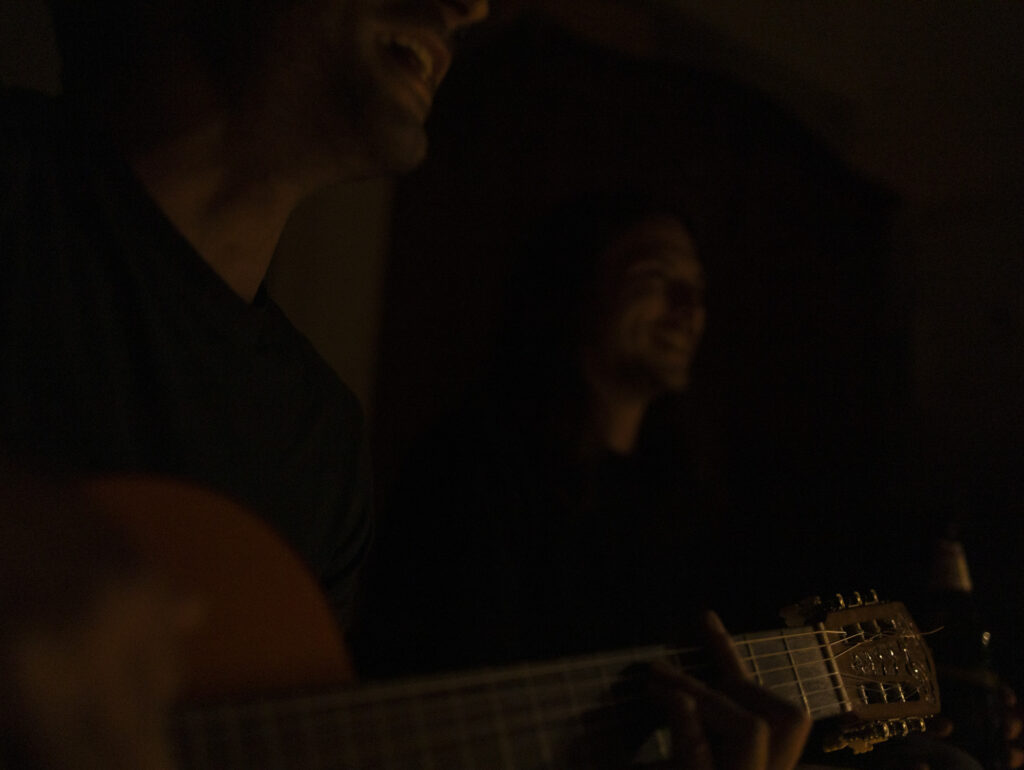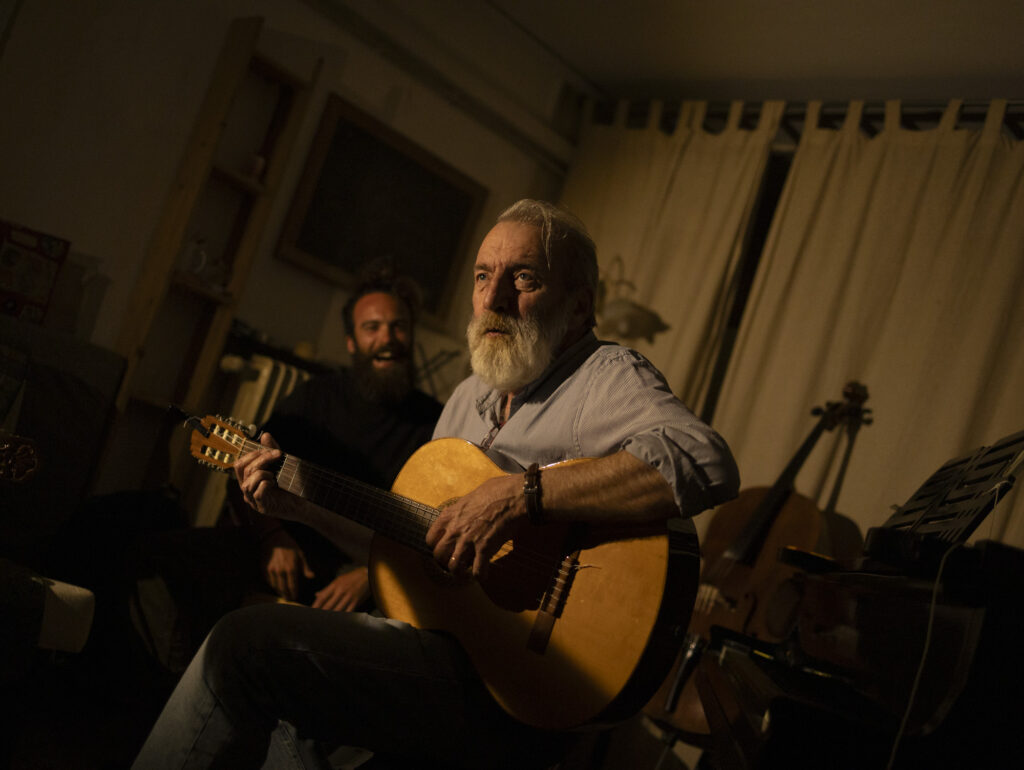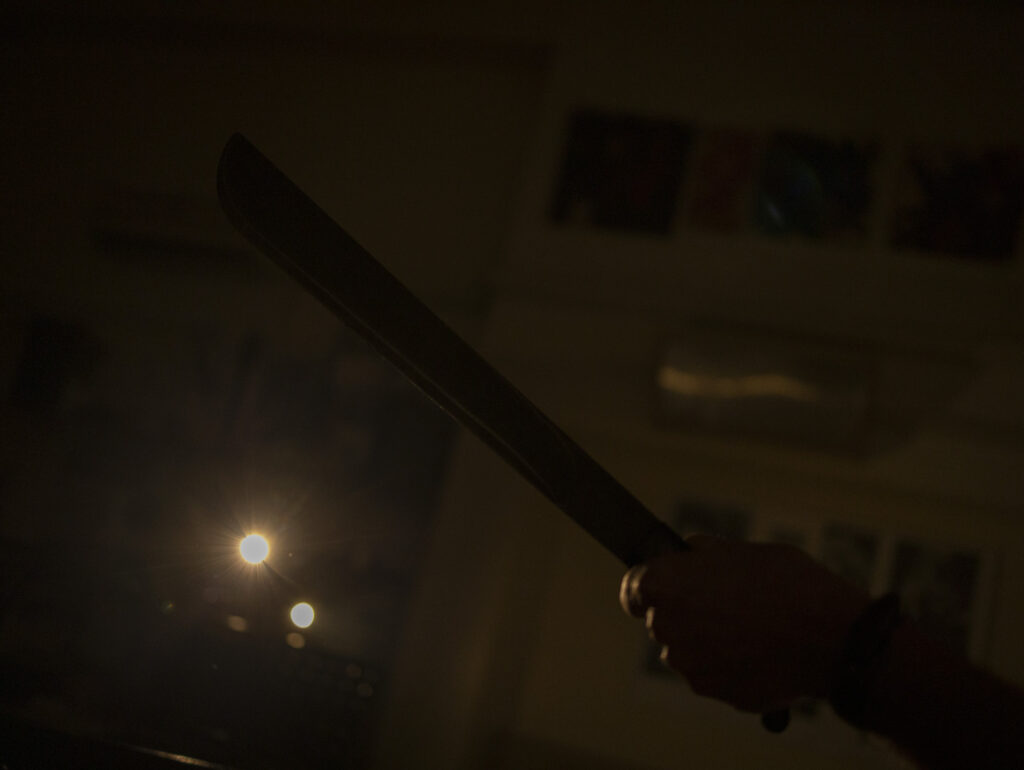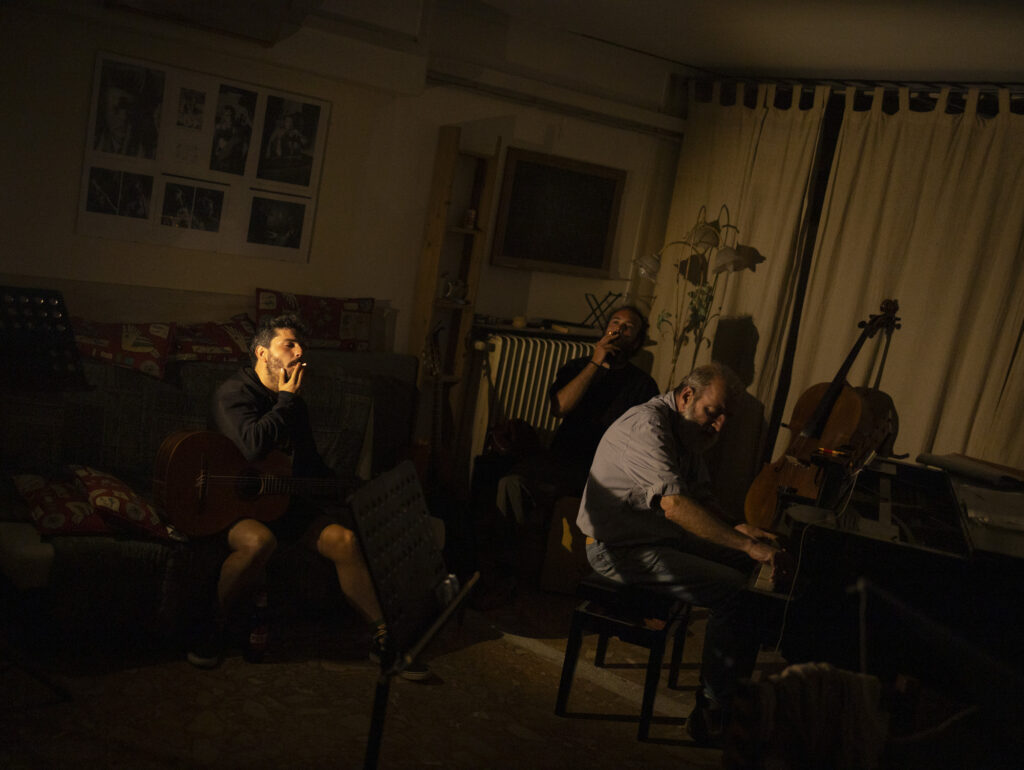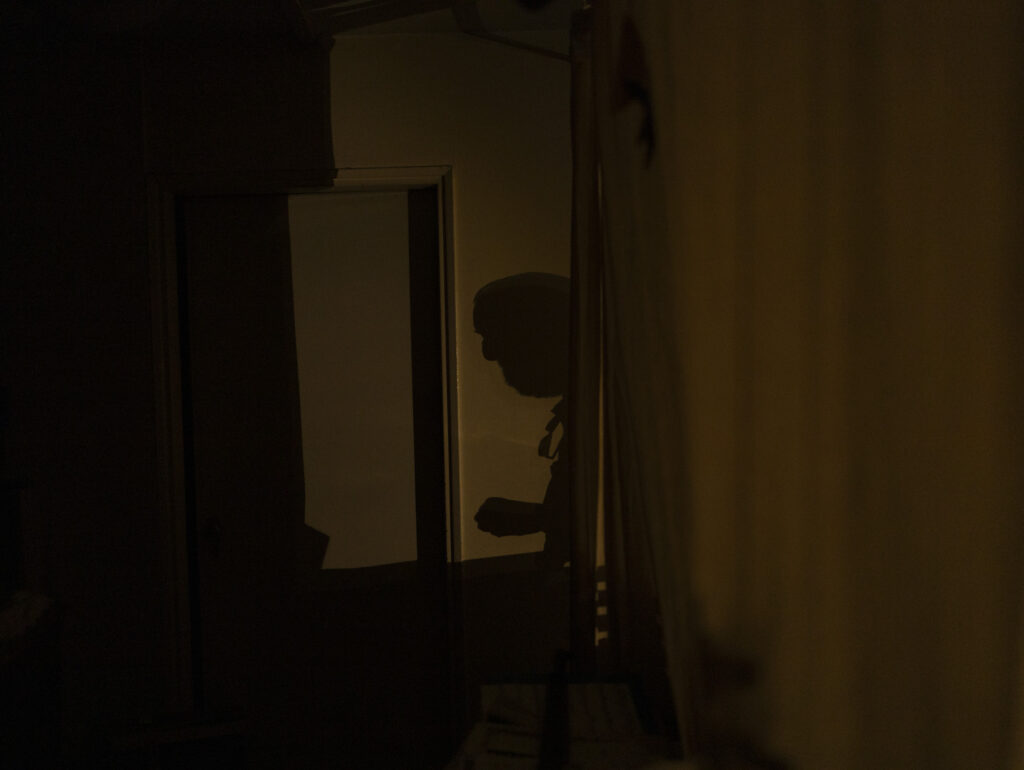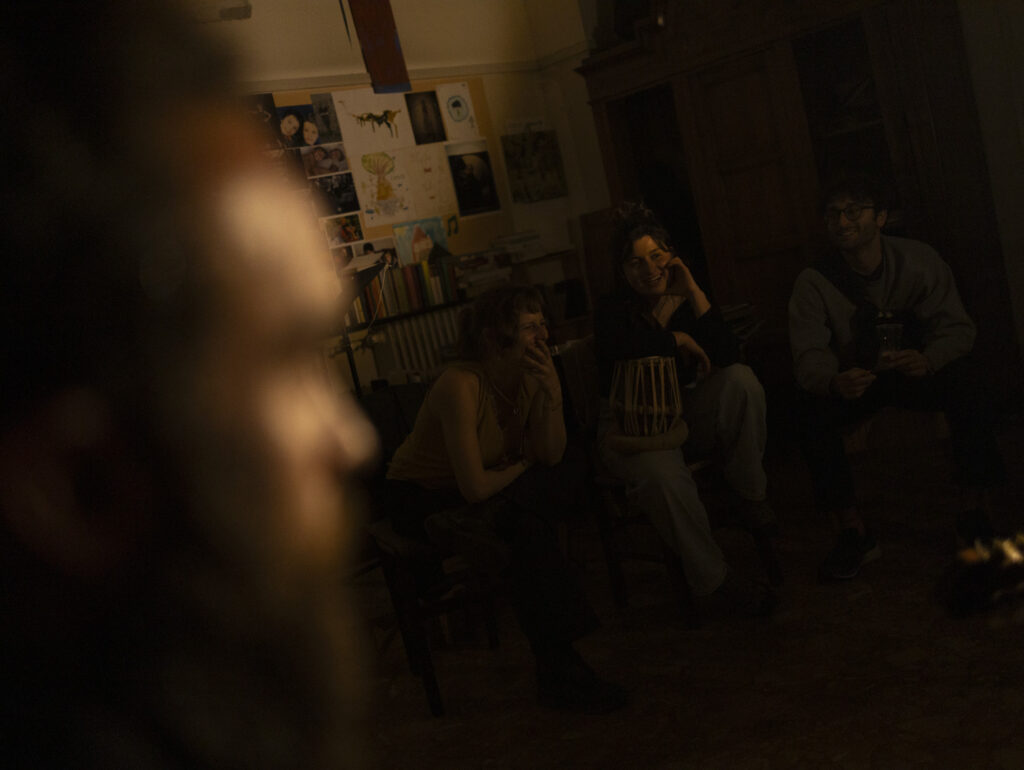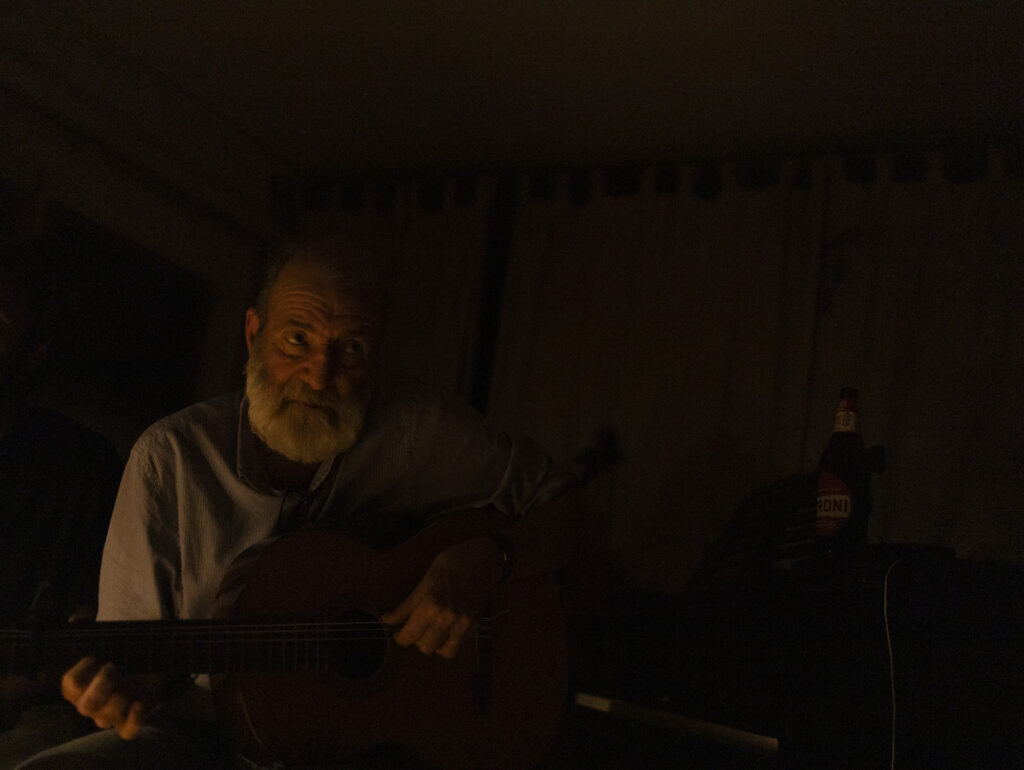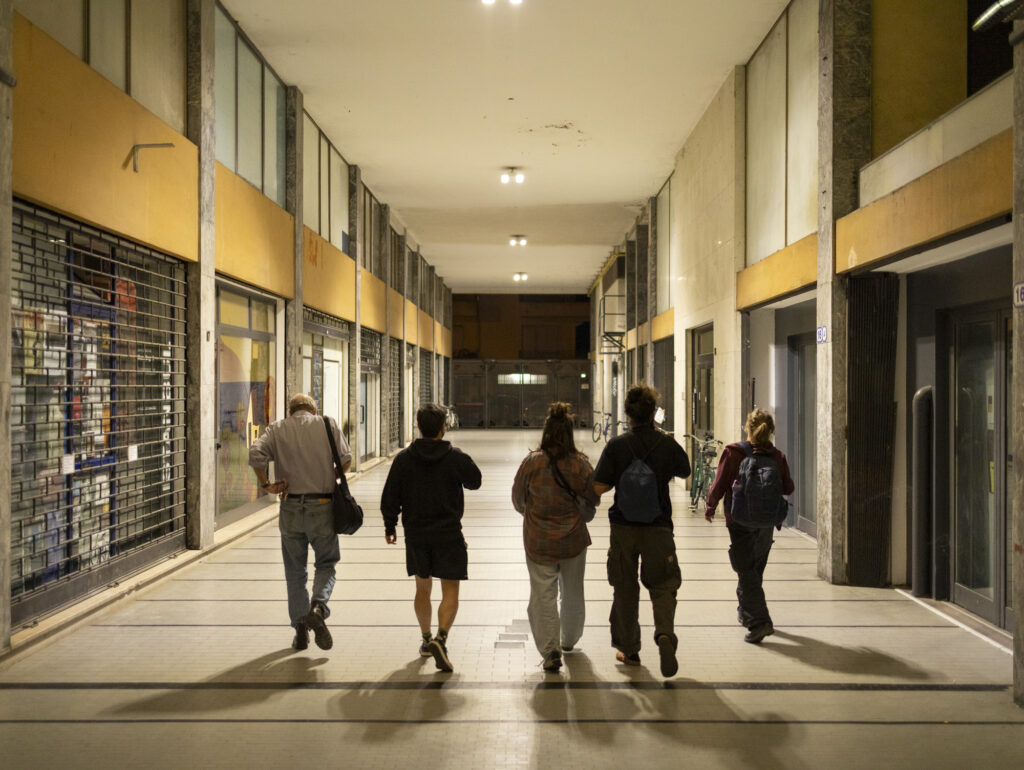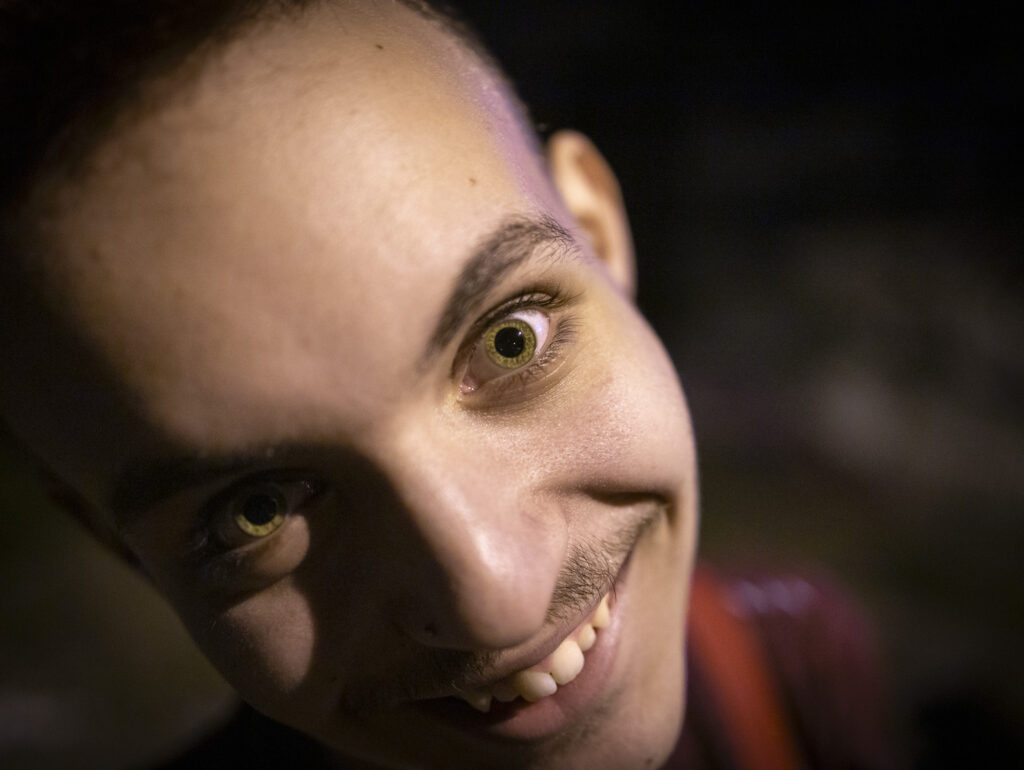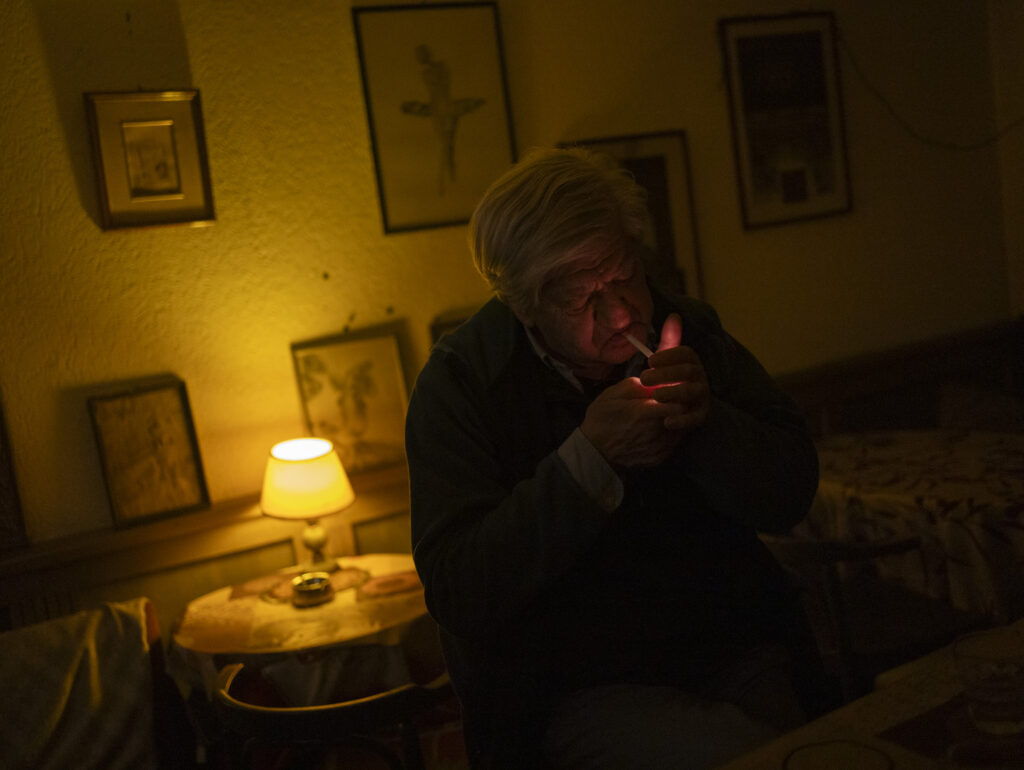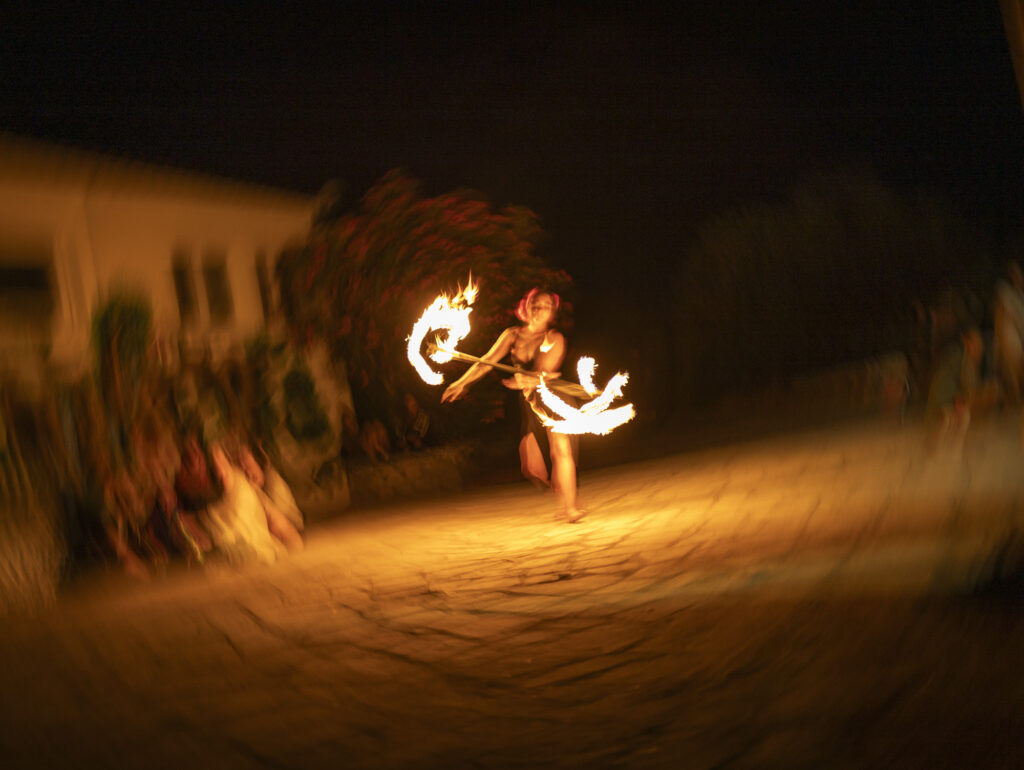Padua, night.
The darkness of the alleys is never silent. In the folds of the shadows, amid the smell of old stones and unfiltered cigarettes, we meet Guido.
He’s 65, but his hands—marked like maps of never-ending journeys—have the same restlessness of a twenty-year-old. Cello, guitar, piano. Instruments he played with Bennato, with others, with no one. Now he plays for himself, for the dead, for the ancient verses burning in his throat.
He invites us into his studio, a theater of faithful objects: flutes that have crossed seas, drums with skins stretched like sails, a cello that has never stopped singing. Nothing here is abandoned—each instrument simply awaits its moment.
We begin to play. It’s not music, it’s a dialogue without language. Then, suddenly, Guido stops. His eyes light up with an ancient fire, his hands draw broken lines in the air.
“Beyond the Pillars, there is only what we carry with us…”
His voice is a dragging current. No longer the Odyssey, but the call of broken boundaries, of journeys burning in the veins. His verses intertwine with smoke, sweat, the hum of instruments that fall silent to listen.
The hours pass. There is no longer a before or after. Only this: bodies that play, tell stories, laugh at lost things. Free, because the night is a confessor that does not judge.
Late at night, we go out. The city is empty. Guido remains there, among his instruments and his ghosts.
Read it in :
Italiano
